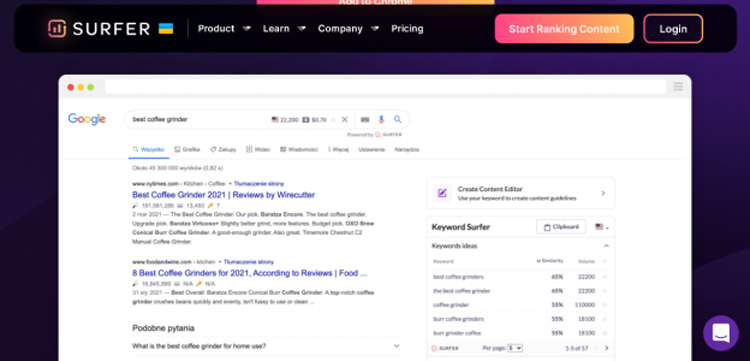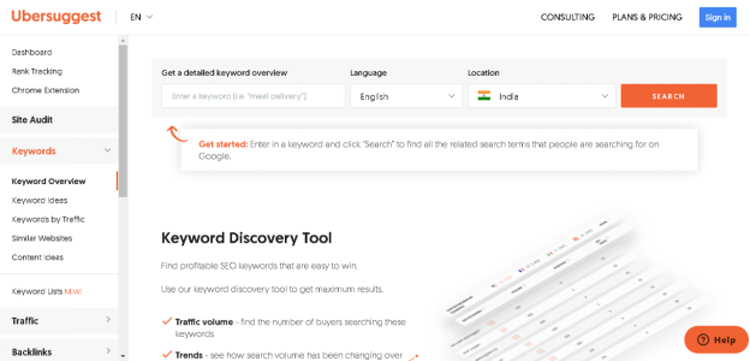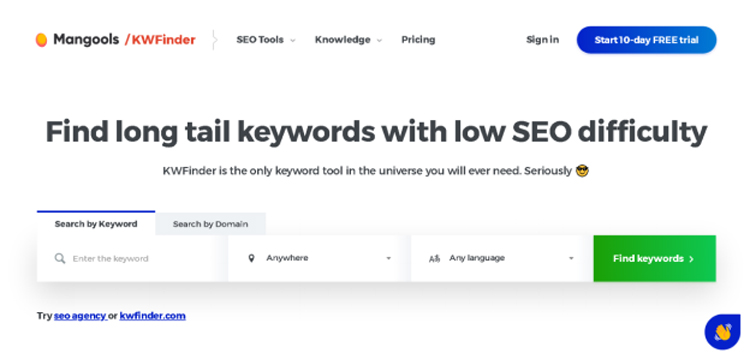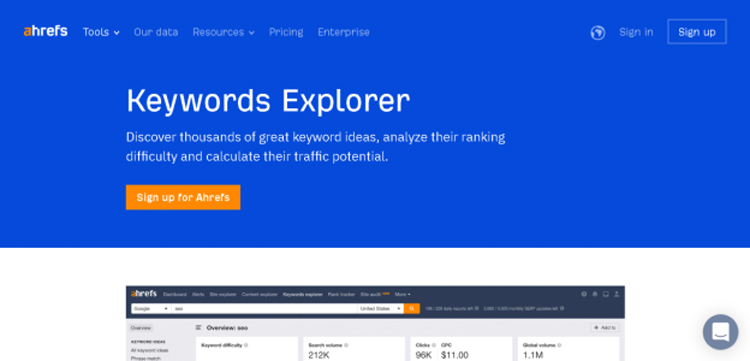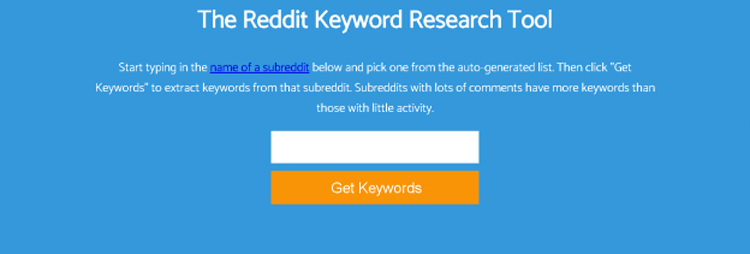Top 13 Keywords Everywhere Alternative Tools in 2024
Keywords everywhere is a great browser extension, but it's not free. There are some good Keywords Everywhere alternatives that you can try instead of paying for this tool!

With the help of the well-known Google Chrome extension Keywords Everywhere, you can identify keywords with precise search volume, CPC, and competitiveness. You will not have to waste your valuable time looking up and copying metrics from other websites, saving your time and energy. The extension simplifies the overall process of researching keywords and selecting the best one for your on-page SEO strategy. Why do we need a Keywords Everywhere alternative then?
Keywords everywhere used to be a totally free tool, but they no longer offer full access to it for free. Currently, the only features available in the free version are related keywords, long-tail keywords, and trend charts. You must switch to a paid version of the tool to unlock its full potential. Nevertheless, its paid plans are fairly inexpensive and perfect for small businesses. If you are lost between switching different keyword research tools to accomplish your SEO tasks, we recommend you go for professional SEO services. It will save valuable time for your company as you will be able to focus more on your core tasks.
There are times when you would not like to purchase a paid plan or you might be unsatisfied with the performance of Keywords Everywhere tool. In this post, we have shared a list of 13 Keywords Everywhere Alternatives to assist you with keyword research. But before we proceed, let’s learn more about Keywords Everywhere and why keyword research is important.
What is Keywords Everywhere?
Contents
Keywords Everywhere is a Chrome and Firefox browser extension. It displays data on competition, cost per click (CPC), and monthly search volume for various keywords. The information is conveniently integrated into a single search results page. Its interface and usability make it a popular tool among marketers.
The tool also has several other great benefits that have contributed to its popularity in the past few years. The major one being its ability to show results on Google search page. This is very helpful as it saves a lot of time by not asking SEO professionals to login or visit a dedicated page to see results.
Before we discuss Keywords Everywhere Alternative tools in detail, let’s know the names of some major ones first.
Top Keywords Everywhere Alternative Tools
These are the top 7 keywords everywhere alternatives that you must try if you are thinking of dropping the app for something new. These tools have been tried and tested by thousands of marketers. They also receive regular updates to stay relevant to the current Google search engine guidelines.
- Keyword Surfer
- Ubersuggest
- WMS Everywhere
- Semrush
- KW Finder
- Serpstat
- Keyword Sheeter
Why is Keyword Research Important?
The queries that your target audience actually searches for on Google can be learned from keyword research. Your wider marketing plan and your content strategy can both benefit from the insight you can gain about these actual search phrases.
When conducting internet research, people utilize keywords to discover answers. Therefore, you stand to get more traffic if your content is successful in appearing in front of our audience while they conduct searches. As a result, you ought to concentrate on such searches.
Additionally, according to inbound techniques, we should design content around what people want to learn rather than what we want to tell them. Or to put it another way, our audience should find us rather than being the other way around.
13 Best Keywords Everywhere Alternatives
Keyword Surfer performs quite similarly to Keywords Everywhere. With accurate statistics and a pleasant user interface, it is a pretty near substitute for Keywords Everywhere.
On the Chrome Web Store, Keyword Surfer has over 300,000+ active users and a four-star rating. Its progenitor, the paid SEO tool called SEO Surfer, is where Keyword Surfer gets its data from. As a result, the information is trustworthy and can be easily utilized for keyword research and various other data analyzation purposes.
One thing to keep in mind, that the word count displayed by this tool on Google pages is sometimes far lower than the actual number. So, it is best to cross check some data from your searches to ascertain the quality of output. Your choice of tool will also depend on other factors like the number of queries you are going to make on a daily basis and the budget you have in mind to achieve accuracy.
If you are interested in digital marketing or have anything to do with online marketing, Neil Patel is no ghost to you. Everyone in the industry knows about this guy who has built an SEO empire from nothing. Digital marketing expert Neil Patel has a number of goods in his expertise. Ubersuggest is one such widely used tool. Prior to the recent introduction of subscription packages, Ubersuggest was a free tool.
Despite being a web application, Ubersuggest also has a chrome extension. With features like keyword overview, backlink correlation, and the display of additional crucial metrics like CPC, volume, and keyword difficulty, it appears to be the ideal substitute for Keywords Everywhere. In the sidebar, Ubersuggest also displays a list of associated terms with full analytics.
It is one of the most user friendly and advanced tools that you can utilize for keyword research. It provides a wealth of information about a keyword, allowing you to focus with a single tool instead of trying different angles with several others. Another major advantage of Ubersuggest is its speed and usability. You can track metrics on a page with just a single click. It displays the top keywords a page is ranking for in your target country. The tool also shows keyword volume according to country.
Another simple to use browser extension is WMS Everywhere, which provides keyword research data inside Google search results so you can find new keywords on the go. It is among the best available free alternatives to Keywords Everywhere. Similar to Keywords Everywhere, this Google Chrome Extension enables you to view the search volumes for various keywords directly on Google’s results page.
Every day, WMS Everywhere updates user data automatically to preserve its accuracy and relevancy. Additionally, customers can get infinite keyword ranks. You may easily refresh your rank tracker whenever you want if you require the most recent standings.
The fact that WMS Everywhere is simple to use even for those without any programming experience is one of its most significant characteristics. It is one of the main reasons behind WMS Everywhere’s rapid growth over the past few years.
Semrush is one of the all-time most popular SEO tools. It is the one-stop solution for anyone looking for the best SEO or PPC tools. It is the most complete and potent substitute for Keywords Everywhere on this list. Keyword research is only one of the many things that Semrush offers in an effort to become the one and only tool you will ever need for controlling your online presence. You may conduct in-depth SEO/SEM research with Semrush, which includes competitor analysis, rank tracking, keyword research, backlink tracking, and content marketing.
Although Semrush is a paid product, it just debuted a free add-on called the ‘Semrush writing assistant’ in an effort to attract more users. It natively integrates with WordPress and Google Docs.
You can set Goals that will serve as your target keywords with Semrush writing assistance enabled. Additionally, it will make recommendations for keywords that you may use as LSI keywords. Moreover, semrush offers a tonne of other capabilities that will assist you in creating articles that will perform better on SERP.
Last but not least, you can use Semrush to manage your social media presence and guide your social media strategy. This includes managing profiles, scheduling posts, analyzing post performance, tracking rival profiles, and running social ads.
KWFinder is Mangool’s flagship keyword research tool. KW Finder asserts that conducting keyword research is not rocket science and claims to greatly simplify the process for you.
It is a much more user-friendly keyword research tool than many others due to its user interface, legible typefaces, and overall greater visual appeal. Mangools’ unique strength is assisting you in finding keywords that will be significantly simpler to rank for eliminating guessing in keyword research. A really helpful Chrome plugin from KWFinder performs keyword research in a new way.
Without actually leaving the page you are on, you can learn which keywords the current page ranks for. For competitor research, the KW Finder tool provides a wealth of information. You just need to translate its data packets into usable outcomes. Competitor research done right can help your brand to great lengths. You can target a competitor’s top ranking keywords and work on them for some time. It will get you quality traffic and improve your in-bound linking chances.
For bloggers and content marketers, Ahrefs is a top SEO tool. Many international corporations utilize this tool to make knowledgeable marketing selections because its data is more reliable as compared to other tools on the market.
Because of its ‘Keyword Difficulty’ feature, Ahrefs has gained massive popularity among SEO professionals. Despite not having a dedicated Chrome plugin, Ahrefs does offer a free keyword research and generating tool that you can use without having to register.
You may also conduct keyword research on platforms other than Google using Ahrefs, including Bing, YouTube, and Amazon. Additionally, you can select the nation for your research using the country filter. Simply enter your term, and a list of keywords with their ranking difficulty and search volume will be generated. Ahrefs’ multipurpose usage has pointed it towards achieving moonshot growth within a small period of time.
Ahrefs pricing has also played a major part in its success. The tool provides accurate and easy to study data at pocket friendly prices, allowing small businesses and agencies to subscribe to its packages. It is a true testament of how smart pricing can trigger growth for a brand.
Google’s autocomplete, which has amassed a database from millions of searches, is one of the most effective methods for learning what people are looking for. It forecasts what you are going to ask based on the information that has already been typed.
Based on what Google suggests, it does not take much to reverse-engineer this and determine what the most popular queries are in the ‘People Also Ask’ section. For example, the top predictions for ‘content marketing in’ point to a few helpful concepts, indicating that these are the most popular search terms.
We can be sure that there is search traffic behind every query because they are all produced from queries that are genuinely being asked, thus the more variations we test, the more ideas we will have for fresh content. However, since you have to go through each recommendation one at a time, doing this manually is a tedious process.
Answer The Public, which basically functions as an automated autocomplete tool, uses the methodology we just described to find prospective content subjects by experimenting with numerous variants of your terms. The outcomes are then shown, divided into groups based on the variations that were used to produce them: the ‘whys’ are displayed separately from the ‘hows,’ and are displayed in a downloadable image.
Prepositional suggestions, such as ‘like,’ ‘against,’ ‘with,’ and ‘without,’ as well as an alphabetical search that appends letters to the original question and lists the most frequent queries that use each letter are also generated by Answer the Public.
There are many potential topics provided by Answer the Public, but you only need a handful of the good ones to produce excellent content. The tool sorts the wheat from the chaff by selecting the subjects that will help you most.
Serpstat is a comprehensive SEO tool that offers users all the information required to create an effective SEO plan. For all nations in the world, including 230 Google databases, Serpstat has gathered keyword and competition analysis data.
It will assist you in gathering the most effective keywords and give you practical advice for utilizing these keywords on your website. The best keyword research technique for your website depends on a number of variables. Website or competitor analysis is the ideal option if you currently have a website and want to identify keyword gaps. You should use traditional keyword research if you are starting from scratch and have no idea what your niche looks like.
Serpstat gives you a list of historically successful keywords that rivals have used to boost their rankings in search results. Additionally, it calculates the worth of your keywords based on a variety of variables, including the volume of search results and cost per click.
Long-tail keywords, which are low-volume keywords relevant to your business, will also be provided by the software along with ideas for more suggestive terms. Additionally, the tool’s database contains keywords that can be modified for use in several regions if your firm is global.
Finally, Serpstat allows you to assess the relevance of your webpages and identify any trends that may appeal to browsers. If you want comprehensive evaluations of keywords that are successful for competitors, Serpstat will be very helpful to you. It is a fantastic technique for ensuring that your page has less likelihood of losing a good ranking in SERPs.
With this website, the maxim ‘Keep It Simple Stupid’ (K.I.S.S.) really applies. Although it has a very simple design, it is quick, effective, and has the advantage of having a positive and negative filter.
You might be wondering at this point what exactly that is, and the response is really straightforward. If you are looking for information about Windows, you are probably not seeking information about construction, so you could type the term ‘Windows’ in the positive box and something like ‘construction’ or ‘home’ in the negative box.
This tool is ideal if you need to quickly produce a large number of keyword suggestions. It retrieves about 1,000 ideas every minute, and with just one click you can export the outcomes for nothing.
The simplicity of Keyword Sheeter is its only drawback. It does not provide data on search volumes or trends, nor does it aggregate keywords the way Keyword Planner does. Positive and negative filters are another noteworthy aspect, though.
A special tool called Keyworddit extracts term suggestions from Reddit. When you enter a subreddit, it will mine the topic titles and comments for up to 500 keywords. If you are unfamiliar with a specialty, this tool is a great place to start.
Take ideas from /r/football, for instance, if you want to establish a blog about football but have no prior knowledge of the subject. It also reveals the vocabulary people employ to describe these things. The tool also extracts the approximate US monthly search volumes for each keyword. That gives you a better picture of the level of interest in each subtopic.
The simplicity of Keyworddit is its specialty. Simply enter the subreddit you wish to search in the tool’s input field, and you will be given a list of popular keywords ranked by monthly search volumes.
Of all the keyword research tools on the market, Term Explorer gives possibly the most thorough results. You may generate over 10,000 different keyword variations from a single seed term.
The tool excels at keeping the findings as pertinent as possible and bringing a wealth of supporting information along with them. The number of results, link quality, trust score, and keyword difficulty will all be shown, along with other information, for every result on page one of search engine results pages (SERPs).
You may use the tool to examine domain age, page ranking, and links, as well as the word count, page rank, links, outbound links, and the number of keyword occurrences in title, URL, and headers for specific web pages, to help you get a hold on your competition. For your own examination, you may also export all of this data into a CSV file.
GrowthBar is a SEO software that aids in keyword research, competition analysis, rank tracking, and content creation for bloggers and online marketers. You may use GrowthBar to investigate your competitors’ paid Google advertisements, Facebook ads, organic keyword ranks, and backlink data. Through a straightforward and user-friendly interface, it also reveals important data points and provides recommendations.
There are two ways to use the GrowthBar SEO tool. It can first be used as a standalone online application, allowing you to log in, enter keywords, see statistics, and so forth. It differs from the majority of the well-known SEO tools available because it can also be utilized as a Chrome plugin.
GrowthBar’s blogging tool, which is powered by AI, is what sets it apart. GrowthBar produces an outline for you to follow while writing SEO-optimized content when you enter the keyword you wish to rank for. GrowthBar leverages OpenAI’s GPT-3, the most comprehensive language model yet made, to accomplish this.
AccuRanker is a keyword rank tracking tool that stands out for being both incredibly accurate and quick. Therefore, this will wind up saving you a tonne of time if you are used to spending hours tracking the rank advancement of your keywords.
The tool also has built-in proxies so you can quickly see who is listed for a particular keyword in the SERPs. You will appreciate its scheduled weekly reports option if you intend to submit keyword analytics to your management or team.
The search engine rankings it provides for your keywords are among the best available, and it is also one of the best rank trackers. Therefore, it is a terrific tool for determining which pages are ranking in various nations if you are marketing your company to an international audience.
Finally, you can monitor data and predict search traffic for your keywords directly from your AccuRanker dashboard thanks to its ability to link with Google Analytics, Google Search Console, Social Monitoring, and YouTube.
Conclusion
Although it is a pleasure to use free keyword tools, you should only do so when you are just starting out. In order to stay competitive as your site grows, you must gain access to commercial tools like Semrush. Just be sure to pay attention to keyword research because it is the best strategy to increase organic traffic and sales. Get out there and start finding your greatest keywords for SEO now that you are aware of all these fantastic tools.
Frequently Asked Questions
What does a keyword tool do?
You can find topic ideas by using a keyword research tool to find out what people are looking for on search engines like Google, Bing, Amazon, etc. This makes it easier for you to discover content ideas that appeal to your audience. After that, you can organize your content strategy to include those subjects in your landing pages and blog posts.
Are keywords everywhere worth it?
Keywords Everywhere is a browser extension for Google Chrome and Firefox that aids in keyword-level SEO. It supports numerous platforms and aids in comprehending search volume, cost-per-click (CPC) tracking, and website traffic analysis.
How do I use Google keywords?
You can see keyword ideas related to your business by entering the website or a reference term. To accomplish this, follow the below mentioned steps:
1. Sign into your Google Ads Account
2. Select the tools icon
3. Select Discover New Keywords option
4. You will now see two different ways of discovering new keyword ideas
Once you are done with the inputs, click on get results
What is the easiest way to find keywords?
Finding keywords is not as difficult as it used to be. With the help of modern tools and tricks, you can find blockbuster keywords within no time. However, you must always remember the basics before starting with keyword research tools.


